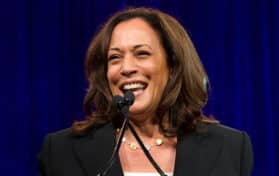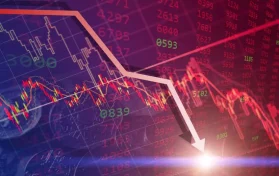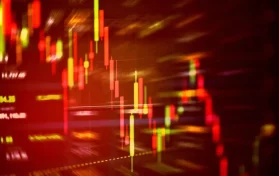
A recent Harvard-Harris survey conducted in July shows that a majority of American voters are seeing their financial situation worsening under the Biden Administration. More than half, 56 percent, told researchers that they see their finances “getting worse.”
When compared with a similar survey taken in July 2021, only 33 percent of those participating said that they were seeing their situation worsen under Biden’s leadership.
The same question was posed to voters in January 2020, before the pandemic placed a stranglehold on the world’s economy, a mere twenty percent of survey participants said their financial situation was worsening.
Breitbart reported on the survey findings, calling the results from the three aforementioned surveys “an ongoing increase (in the worsening financial situations of Americans) throughout Biden’s presidency.”
The Harvard/Harris survey wasn’t the only poll utilized to measure the economic situation of Americans during year two of Joe Biden’s leadership. A Suffolk University/USA Today survey found that “four in ten” Americans are currently having to “cut back” – even on basic goods such as groceries because of the surging inflation rate in the country.
Americans have wrestled with surging inflation for the better part of a year now; last July, the inflation rate was 5.4 percent. When President Donald Trump left office, the inflation rate hovered at 2.487 percent.
Many have pointed to the American Rescue Plan legislation pushed through in March of 2021 for much of the surging inflation rate; however, by the end of August 2021, the public learned of shipping bottlenecks which also fed inflationary measures.
Just two weeks ago ahead of quarterly GDP reports, many pointed out that the Biden White House had posted on its whitehouse.gov blog that a recession didn’t necessarily occur simply because GDP contracted during two consecutive quarters of a year (which is not only the accepted definition, but also one that has been utilized by economists and textbooks to officially define the term “recession”). Some in the media began to utilize the talking point, agreeing with the White House. However, many economists predicted that GDP would be a negative once more for the second quarter – and that the White House was attempting to “get ahead” of the reports.
For many political pundits, the economy is in a recession; however, there are those who point to the jobs market – which added 528,000 jobs in July 2022 – and say we haven’t exactly hit a recession – yet.
While 2022 has been a wild year politically, the economy is still a driving factor for many voters. There are those voters in multiple surveys who relate that abortion access and gun control are the chief issues driving them to the polls in November (and to primary elections if their states haven’t held those as yet). However, at least 34 percent of voters surveyed in the Harvard-Harris survey say that inflation and price increases are the most important issues for the November midterm elections. Another 29 percent of Americans polled said that the economy and jobs are their driving forces behind voting this fall.
The Harvard-Harris poll reveals that, for most Americans, inflation is the most important issue facing Americans today.
Further polling by Rasmussen shows that those participating in the poll believe that America is currently in a recession; they also stated that they believe Democrats are to blame.
President Biden has thrown his weight behind a controversial bill, the Inflation Reduction Act. Some are referring to the same piece of legislation called the Manchin-Schumer spending bill. Many non-partisan analysts have said that the bill will raise taxes on lower- and middle-income Americans, which would break the promise that Biden made during his campaign.
The Inflation Reduction Act is set to be voted on sometime Saturday. A “vote-a-rama” preceded any official vote during the day Saturday.





